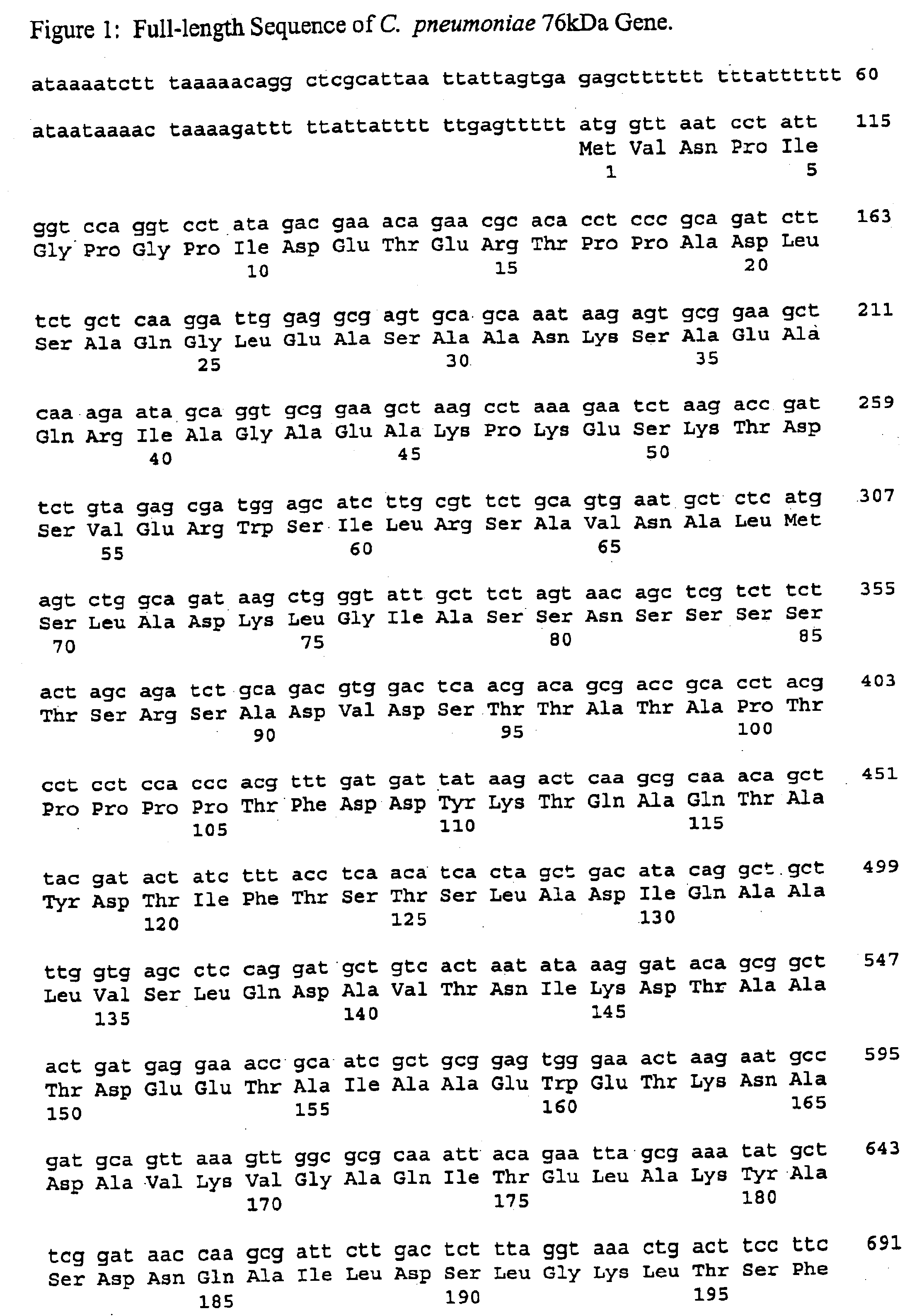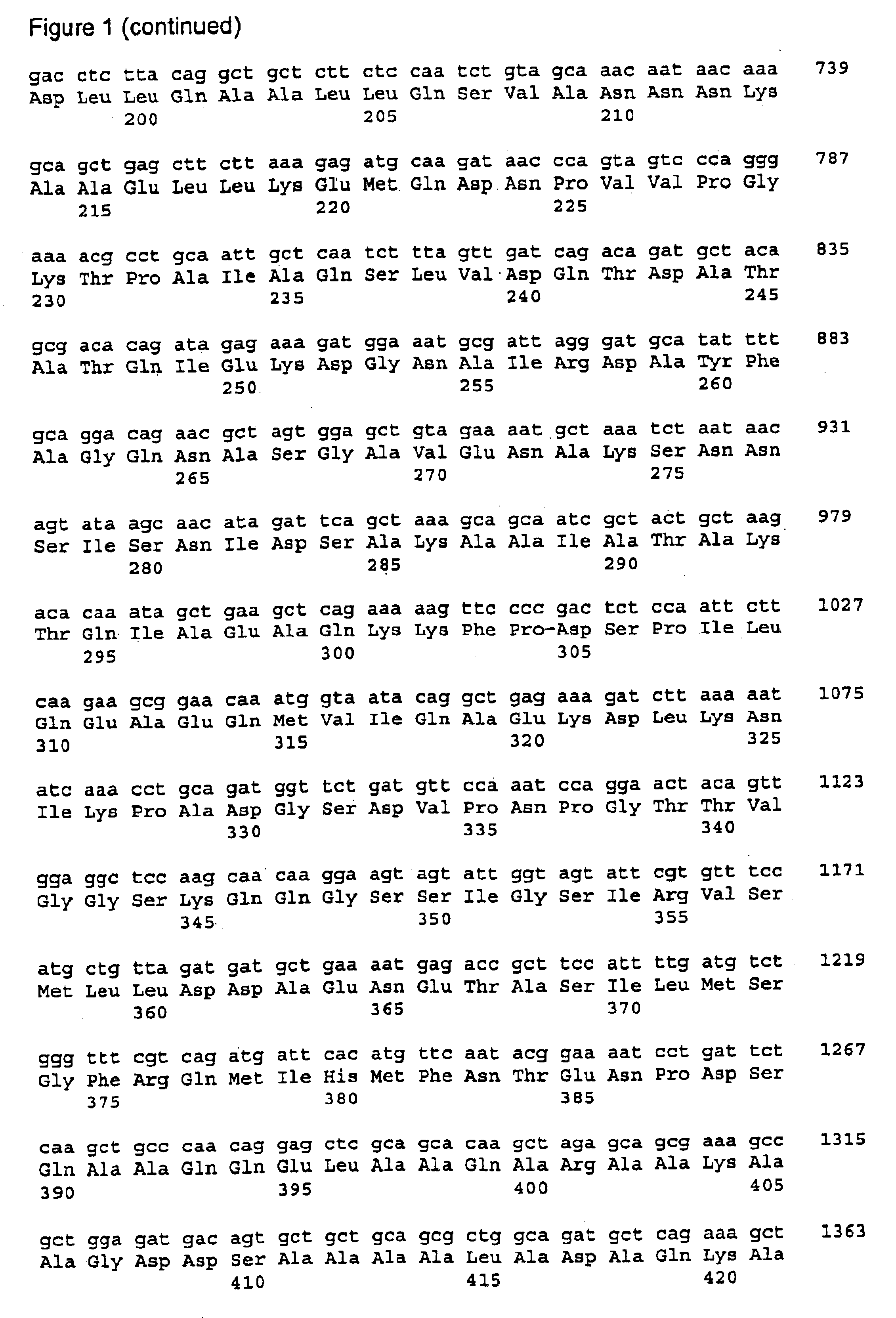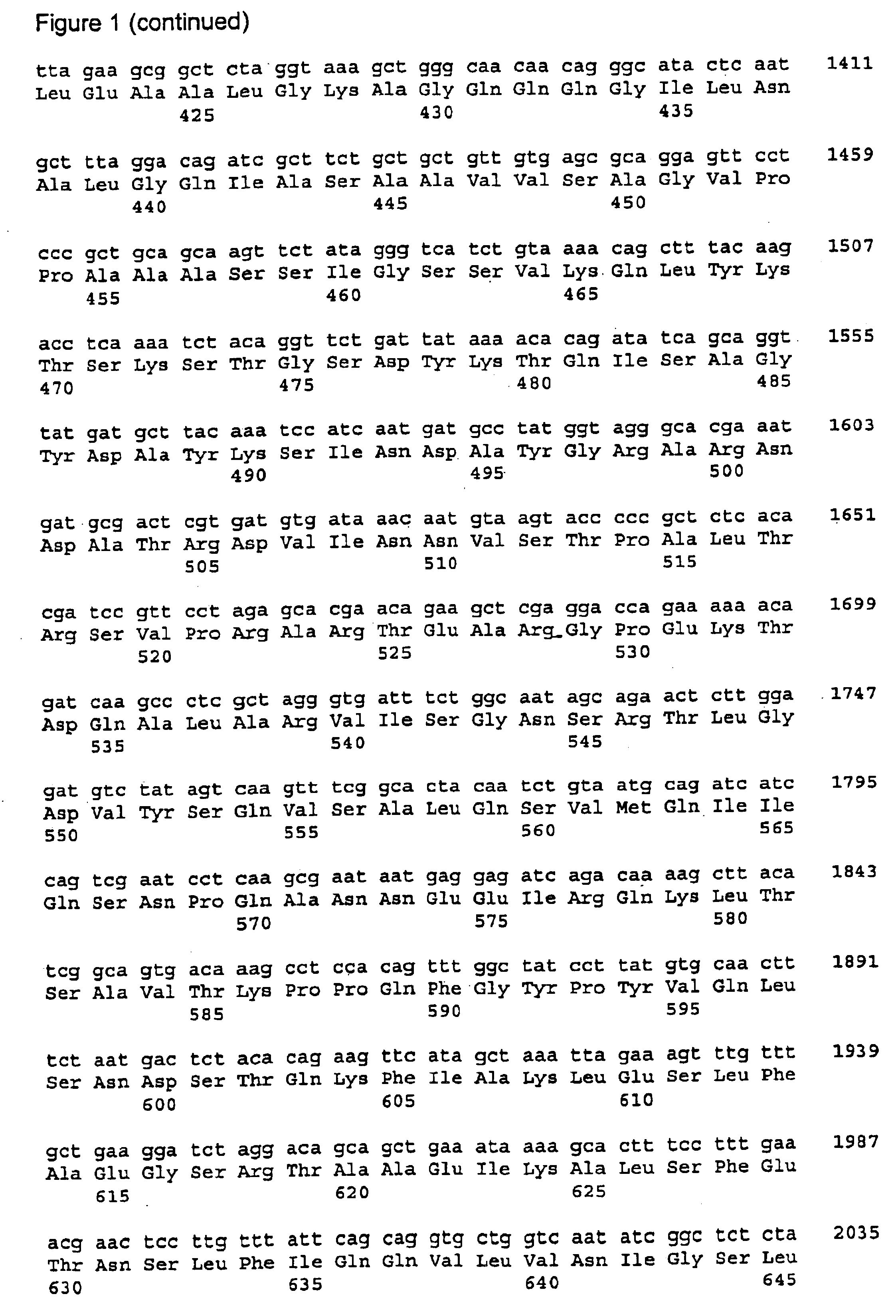Chlamydia antigens and corresponding DNA fragments and uses thereof
a technology of chlamydia and antigens, which is applied in the field of chlamydia 76 kda protein and corresponding dna molecules, can solve the problems of slow recovery, ineffective vaccine for any human being, and vaccines with low safety margins
- Summary
- Abstract
- Description
- Claims
- Application Information
AI Technical Summary
Benefits of technology
Problems solved by technology
Method used
Image
Examples
example 1
[0163]This example illustrates the preparation of a plasmid vector pCACPNM555a containing the full length 76 kD a protein gene.
[0164]The full-length 76 kDa protein gene (SEQ ID NO:1) was amplified from Chiamydia pneumoniae genomic DNA by polymerase chain reaction (PCR) using a 5′ primer (5′ATAAGAATGCGGCCGCCACCATGGTTAATCCTATTGGTCCAGG 3′) (SEQ ID No:9) and a 3′ primer (5′GCGCCGGATCCCTTGGAGATAACCAGATATAGAG 3′) (SEQ ID No:10). The 5′ primer contains a Not I restriction site, a ribosome binding site, an initiation codon and a sequence close to the 5′ end of the full-length 76 kDa protein coding sequence. The 3′ primer includes the sequence encoding the C-terminal sequence of the 76 kDa protein and a Bam HI restriction site. The stop codon was excluded and an additional nucleotide was inserted to obtain an in-frame fusion with the Histidine tag.
[0165]After amplification, the PCR fragment was purified using QIAquick™ PCR purification kit (Qiagen) and then digested with Not I and Bam HI and...
example 2
[0166]This example illustrates the preparation of the eukaryotic expression vector pCA / Myc-His.
[0167]Plasmid pcDNA3.1 (−)Myc-His C (Invitrogen) was restricted with Spe I and Barn HI to remove the CMV promoter and the remaining vector fragment was isolated. The CMV promoter and intron A from plasmid VR-1012 (Vical) was isolated on a Spe I / Bam HI fragment. The fragments were ligated together to produce plasmid pCA / Myc-His. The Not I / Bam HI restricted PCR fragment containing the full-length 76 kDa protein gene (SEQ ID NO:1) was ligated into the Not I and Bam HI restricted plasmid pCA / Myc-His to produce plasmid pCACPNM555a (FIG. 4).
[0168]The resulting plasmid, pCACPNM555a, was transferred by electroporation into E. coli XL-1 blue (Stratagene) which was grown in LB broth containing 50 μg / ml of carbenicillin. The plasmid was isolated by Endo Free Plasmid Giga Kit™ (Qiagen) large scale DNA purification system. DNA concentration was determined by absorbance at 260 nm and the plasmid was ver...
example 3
[0169]This example illustrates the immunization of mice to achieve protection against an intranasal challenge of C. pneumoniae.
[0170]It has been previously demonstrated (Yang et. al., 1993) that mice are susceptible to intranasal infection with different isolates of C. pneumoniae. Strain AR-39 (Grayston, 1989) was used in Balb / c mice as a challenge infection model to examine the capacity of Chlamydia gene products delivered as naked DNA to elicit a protective response against a sublethal C. pneumoniae lung infection. Protective immunity is defined as an accelerated clearance of pulmonary infection.
[0171]Groups of 7 to 9 week old male Balb / c mice (7 to 10 per group) were immunized intramuscularly (i.m.) plus intranasally (i.n.) with plasmid DN containing the coding sequence of C. pneumoniae full-length 76 kDa protein as described in Examples 1 and 2. Saline or the plasmid vector lacking an inserted Chlamydia gene was given to groups of control animals.
[0172]For i.m. immunization alt...
PUM
 Login to View More
Login to View More Abstract
Description
Claims
Application Information
 Login to View More
Login to View More - R&D
- Intellectual Property
- Life Sciences
- Materials
- Tech Scout
- Unparalleled Data Quality
- Higher Quality Content
- 60% Fewer Hallucinations
Browse by: Latest US Patents, China's latest patents, Technical Efficacy Thesaurus, Application Domain, Technology Topic, Popular Technical Reports.
© 2025 PatSnap. All rights reserved.Legal|Privacy policy|Modern Slavery Act Transparency Statement|Sitemap|About US| Contact US: help@patsnap.com



